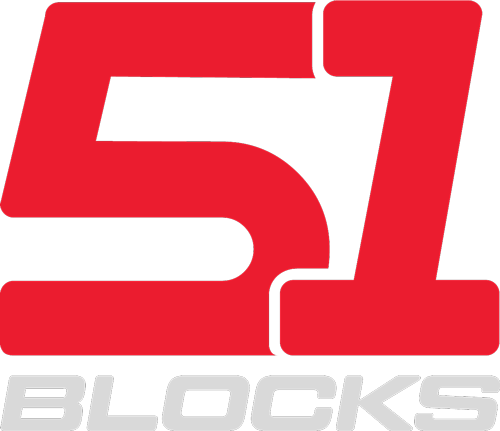When you’re running a small agency, it often feels like you’re juggling a dozen tasks at once. Imagine if you could offload some of those tasks, freeing up your time to focus on what you do best.
Well, that’s where outsourcing comes in. But how do you navigate the world of outsourcing to ensure that it actually benefits your agency?
In this discussion, we’re going to uncover the 8 best tactics that small agencies can use to effectively outsource tasks, save time, and ultimately grow their business.
So, let’s dive in and explore how you can strategically leverage outsourcing to take your agency to the next level.
Key Takeaways
- Conduct a core competency assessment to identify areas of excellence and determine which tasks can be outsourced.
- Prioritize outsourcing tasks that fall outside of core competencies to maximize the value of internal capabilities.
- Select outsourcing partners based on expertise, reliability, and cultural fit, considering their track record in delivering services in your industry.
- Set clear expectations and goals, establish effective communication channels, and implement quality control measures to ensure successful outsourcing projects.
Identifying Core Competencies
Identifying your agency’s core competencies is crucial for understanding what sets you apart from the competition and where you can excel in your outsourcing tactics. Conducting a core competency assessment allows you to pinpoint the specific areas where your agency excels, whether it’s in customer service, digital marketing, or graphic design. This assessment helps you identify the unique strengths that give your agency a competitive edge.
Once you’ve identified your core competencies, it’s important to conduct a skill gap analysis. This involves evaluating the skills and expertise currently available within your agency and comparing them to the skills needed to fulfill your outsourcing objectives. By understanding where the gaps lie, you can strategically outsource tasks that fall outside of your core competencies, ensuring that you’re leveraging the most appropriate resources to enhance your agency’s overall performance.
For example, if your agency specializes in web development but lacks expertise in content writing, a skill gap analysis would reveal this disparity. As a result, you can then prioritize outsourcing content creation to a skilled partner, allowing your agency to focus on its core competency of web development. This targeted approach not only improves the quality of outsourced work but also maximizes the value of your agency’s internal capabilities.
Selecting the Right Outsourcing Partners
So, you’re ready to find the perfect outsourcing partners for your small agency.
It’s all about setting clear partner selection criteria and evaluating vendor expertise.
These are the key steps to ensure you’re making the right choice for your agency’s needs.
Partner Selection Criteria
When selecting the right outsourcing partners for your small agency, it’s crucial to consider their expertise, reliability, and cultural fit with your organization.
Partner evaluation should include assessing their track record in delivering the services you require. Look for vendors who have a proven history of success in your specific industry.
Additionally, reliability is key. Ensure that the partners you choose have a reputation for meeting deadlines and delivering high-quality work consistently.
Cultural fit is often overlooked but is equally important. The right partner should align with your agency’s values and work ethic. Consider their communication style, work processes, and overall compatibility with your team.
Evaluating Vendor Expertise
To ensure you’re selecting the right outsourcing partners for your small agency, it’s essential to thoroughly evaluate the expertise of potential vendors.
When evaluating vendor expertise, consider the following:
- Vendor Qualifications: Review the educational background, certifications, and experience of the vendor to ensure they’ve the necessary qualifications.
- Skills Assessment: Evaluate the specific skills and capabilities of the vendor to determine if they align with your agency’s needs.
- Vendor Capabilities: Assess the vendor’s capacity to handle the workload and meet your agency’s requirements.
- Industry Experience: Look for vendors with experience in your industry to ensure they understand the unique challenges and requirements.
- Client References: Request and review client references to gauge the vendor’s performance and reliability.
Thoroughly assessing these aspects will help you make an informed decision when choosing an outsourcing partner.
Setting Clear Expectations and Goals
One effective way to set clear expectations and goals when outsourcing for your small agency is to establish a detailed project scope that outlines the specific deliverables and deadlines. Clear communication is key in this process to ensure that both you and the outsourcing partner are aligned in terms of goals and expectations. When creating the project scope, be as detailed as possible to avoid any misunderstandings. Clearly define the project objectives, the tasks to be completed, the quality standards expected, and the deadlines for each deliverable.
In addition to the project scope, it’s important to have open discussions with your outsourcing partner about the goals you want to achieve. Clearly communicate what success looks like for the project and ensure that both parties are aligned in terms of goal alignment. This will help in setting the right expectations from the beginning and avoid any potential conflicts or misunderstandings down the road.
Setting clear expectations and goals also involves being transparent about your agency’s needs and limitations. If there are specific constraints or requirements that the outsourcing partner needs to be aware of, communicate these early on. This could include budget limitations, time constraints, or any other relevant factors that could impact the project.
Establishing Effective Communication Channels
Consider establishing a variety of communication channels to ensure seamless interaction with your outsourcing partners, facilitating efficient collaboration and problem-solving throughout the project.
- Regular Video Calls: Schedule regular video calls to discuss project updates, clarify any queries, and build a stronger rapport with your outsourcing team. Seeing each other face-to-face, even virtually, can help foster a sense of camaraderie and understanding.
- Instant Messaging Platforms: Utilize instant messaging platforms such as Slack or Microsoft Teams for quick exchanges of information, sharing files, and keeping everyone in the loop. These platforms are great for real-time communication and can help address any urgent issues promptly.
- Email Correspondence: Maintain a clear and professional email correspondence for formal communication, sharing detailed project briefs, and documenting important decisions and agreements. Email provides a written record of discussions and can serve as a point of reference in case of any misunderstandings.
- Project Management Tools: Implement project management tools like Asana, Trello, or Jira to assign tasks, track progress, and maintain transparency on project timelines and deliverables. These tools streamline workflow and keep everyone aligned on project goals.
- Regular Status Meetings: Set up regular status meetings to review project milestones, address any roadblocks, and ensure that everyone is on the same page regarding project progress and expectations. These meetings provide an opportunity for open dialogue and problem-solving.
Implementing Quality Control Measures
So, you’ve found some reliable outsourcing partners, but how do you ensure that the work they deliver meets your standards?
It’s all about implementing quality control measures. This involves setting up inspection and monitoring processes to catch any issues early on, as well as continually improving the outsourcing processes to maintain high quality.
Inspection and Monitoring
Implementing Quality Control Measures is a crucial aspect of ensuring the high standards and consistency that clients expect from your agency’s outsourced services. To effectively manage the quality of outsourced work, consider implementing the following inspection techniques and performance monitoring measures:
- Regular site visits or virtual inspections to assess work quality and adherence to standards.
- Utilizing key performance indicators (KPIs) to track and measure the performance of outsourced tasks.
- Implementing quality assurance processes to identify and address any issues or discrepancies promptly.
- Conducting regular performance reviews and feedback sessions with the outsourcing team to ensure alignment with your agency’s standards.
- Leveraging technology and software tools for real-time monitoring and quality control.
Process Improvement
As you focus on ensuring high standards and consistency in your agency’s outsourced services, it’s essential to pivot towards process improvement by reinforcing your quality control measures.
Implement improvement strategies that focus on refining the processes involved in your outsourced tasks. Start by identifying areas that need enhancement, whether it’s communication protocols, task management, or resource allocation.
Set clear performance metrics to measure the effectiveness of these improvements and ensure that they align with your agency’s overall objectives. Regularly review these metrics to track progress and make necessary adjustments.
Encourage feedback from your team and the outsourced partners to gain insights into areas that require further refinement.
Managing Budget and Costs
When managing budget and costs for your small agency, it’s crucial to prioritize tracking expenses and identifying areas for potential cost savings. Here are some tactics to help you manage your budget and costs effectively:
- Cost Analysis and Resource Allocation: Start by conducting a thorough cost analysis to understand where your money is going. This will help you identify areas where resources are being underutilized or where costs can be optimized. By reallocating resources based on this analysis, you can ensure that your budget is being used efficiently.
- Budget Tracking and Expense Management: Implement a robust system for tracking your budget and managing expenses. This could involve using budgeting software or creating a detailed spreadsheet to monitor your income and outgoings. By keeping a close eye on your budget and expenses, you can quickly identify any discrepancies and make necessary adjustments to stay on track.
- Negotiating Vendor Contracts: When working with external vendors or service providers, don’t be afraid to negotiate contracts. Many vendors are open to discussing pricing and terms, especially if you have been a loyal customer. By negotiating contracts, you may be able to secure better rates and terms, ultimately saving your agency money.
- Outsourcing Selective Tasks: Consider outsourcing certain tasks to specialized agencies or freelancers. This can often be a cost-effective solution, as you only pay for the specific services you need, without the overheads of hiring full-time employees.
- Regular Financial Reviews: Schedule regular financial reviews to assess your budget and costs. By setting aside dedicated time to review your financial situation, you can catch any potential issues early and make informed decisions to keep your budget on track.
Leveraging Technology and Tools
You can significantly enhance your small agency’s efficiency and productivity by leveraging the latest technology and tools available in the market. Incorporating technology solutions and automation tools can streamline various processes, saving time and resources while improving the quality of your services.
One of the most impactful technology solutions for small agencies is customer relationship management (CRM) software. CRM systems help you manage client interactions, track leads, and streamline communication, allowing you to provide better customer service and nurture client relationships effectively.
Automation tools are another game-changer for small agencies. By automating repetitive tasks such as email marketing, social media posting, and data entry, you can free up valuable time for your team to focus on high-value activities. Additionally, project management tools can help your agency stay organized and efficient by centralizing project communication, task management, and file sharing in one place.
When it comes to leveraging technology, it’s important to stay updated with the latest advancements in your industry. Whether it’s adopting cloud-based solutions for remote work capabilities or integrating artificial intelligence into your processes, embracing innovative technology can give your agency a competitive edge.
Evaluating and Adjusting Strategies
To effectively evaluate and adjust your strategies, regularly analyze the performance metrics of your agency and gather feedback from both clients and team members. This will provide valuable insights into what’s working well and what needs improvement.
Here are some key steps to help you in adjusting strategies and conducting performance evaluation:
- Set Clear Objectives: Clearly define the goals and objectives of your outsourcing strategies. This will provide a benchmark for evaluating their effectiveness.
- Track Key Performance Indicators (KPIs): Identify the KPIs that align with your objectives and regularly monitor them. This could include metrics such as cost savings, efficiency gains, and client satisfaction.
- Collect Feedback: Actively seek feedback from your clients and team members. Their perspectives can offer valuable observations and suggestions for refining your outsourcing strategies.
- Compare Against Benchmarks: Compare your agency’s performance against industry benchmarks and best practices. This can help identify areas where adjustments are needed.
- Implement Iterative Changes: Use the insights gathered from performance evaluation to make iterative changes to your outsourcing strategies. This could involve refining processes, reallocating resources, or exploring new outsourcing opportunities.
Frequently Asked Questions
How Can Small Agencies Effectively Manage Cultural Differences and Language Barriers When Outsourcing to International Partners?
When it comes to managing communication with international partners, overcoming cultural differences and language barriers is key. Start by fostering open dialogue and understanding.
Embrace diverse perspectives and seek common ground. Utilize tools like translation services and cross-cultural training to bridge gaps. Encourage clear and concise communication, and be patient with language nuances.
Building trust and rapport is essential for successful collaboration across borders.
What Are Some Common Pitfalls to Avoid When Setting Clear Expectations and Goals With Outsourcing Partners?
When setting expectations and goals with outsourcing partners, it’s crucial to avoid miscommunication like the plague. Be crystal clear about what you need and what you expect.
Setting realistic expectations upfront can save you from a world of headaches down the road. Emphasize transparency and open communication to prevent any misunderstandings.
Clear, concise communication is key to steering clear of common pitfalls when working with outsourcing partners.
How Can Small Agencies Ensure That Their Outsourcing Partners Are Effectively Using the Latest Technology and Tools to Meet Their Needs?
To ensure your outsourcing partners are leveraging technology effectively, start by setting clear performance monitoring metrics. Regularly review their use of the latest tools and software to meet your needs.
Communicate your expectations and provide access to necessary resources. Encourage an open dialogue about technological advancements and their potential impact on your projects.
What Are Some Effective Ways to Evaluate the Success of Outsourcing Strategies and Make Necessary Adjustments?
To evaluate the success of your outsourcing strategies, start by setting clear performance metrics.
Regularly monitor communication with your outsourcing partners and track their performance against these metrics.
If you encounter challenges, be proactive in making adjustments to your strategies.
How Can Small Agencies Ensure That Their Outsourcing Partners Are Maintaining High Quality Standards and Meeting Established Quality Control Measures?
To ensure your outsourcing partners maintain high quality standards, implement a robust quality assurance process.
Clearly communicate your quality control measures and expectations with your partners.
Regularly check in and provide feedback to ensure they’re meeting your standards.
Utilize effective communication strategies to address any issues and make necessary adjustments.
Final Thoughts
So there you have it, small agency owner! Just like a well-oiled machine, outsourcing can help your business run smoothly and efficiently.
By identifying the strengths and weaknesses of your agency, finding the right partners, and setting clear expectations, you can ensure success in your outsourcing endeavors.
Remember, it’s like assembling a team of superheroes to tackle different tasks, allowing you to focus on what you do best.
Happy outsourcing!






